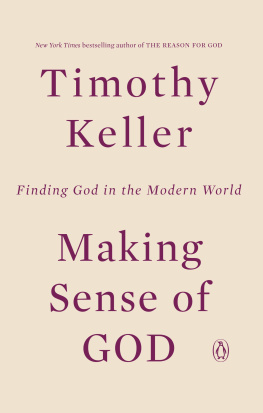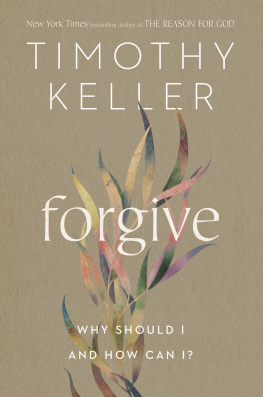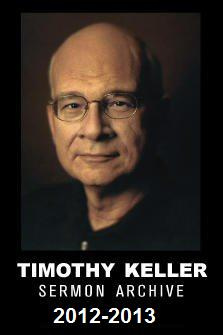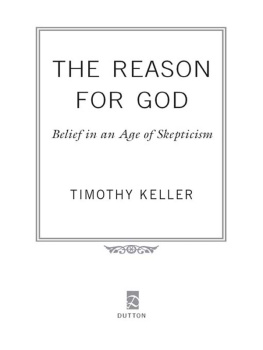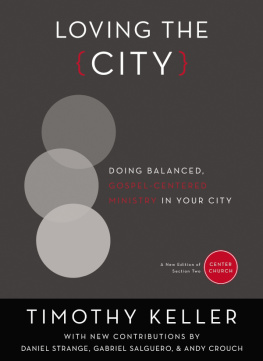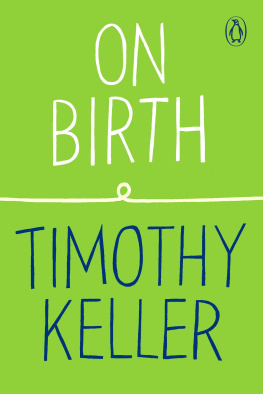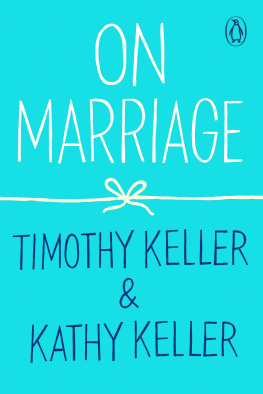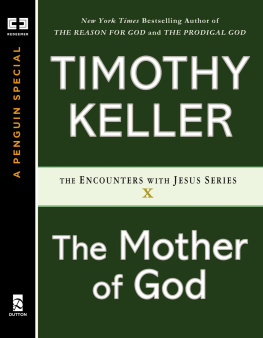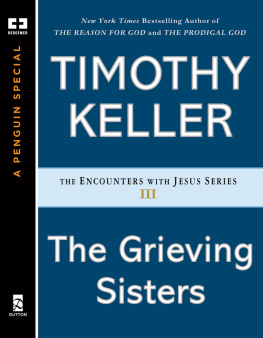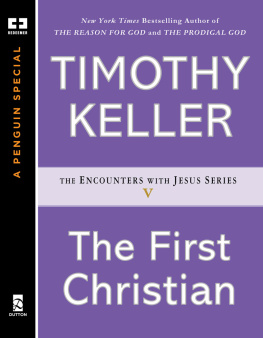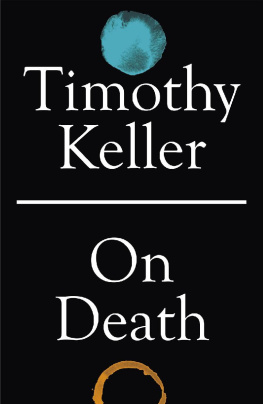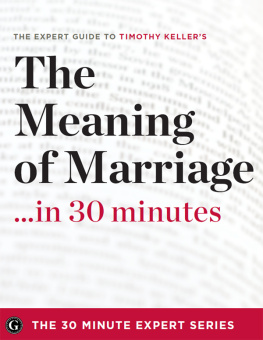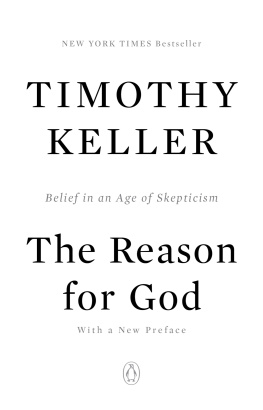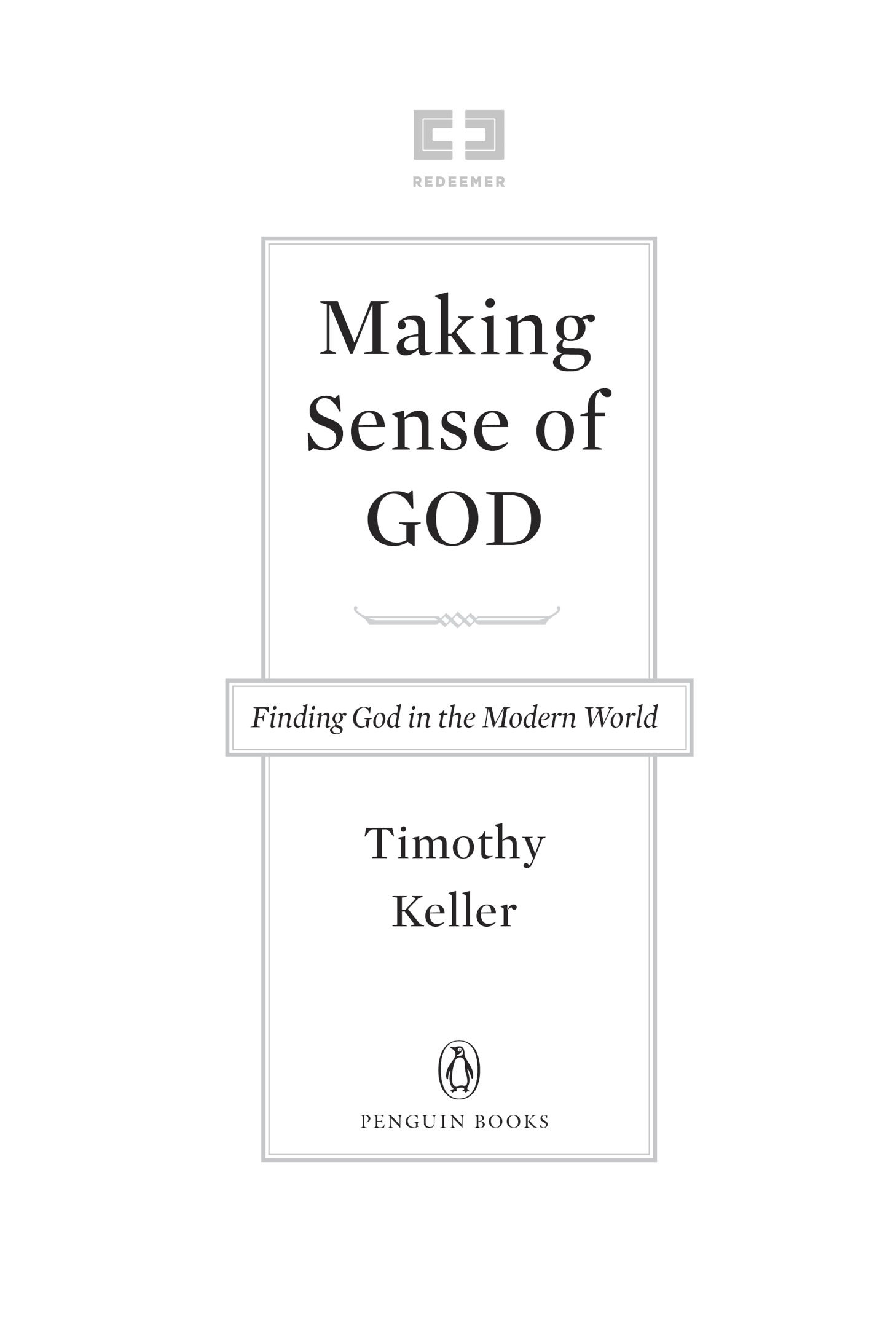Preface

The Faith of the Secular
I have been a Christian minister in Manhattan for nearly thirty years. Most people in the city that is my home are not religious believers. Nor are they what used to be called C and E (Christmas and Easter only) Christians. Rather, most would identify as no religious affiliation or as secular.
Recently the New York Times ran a story about a weekly discussion venue our church holds for people who are skeptical that there is a God or any supernatural reality. The ground rules of the group assume neither that any religion nor that secularism is true. Instead, multiple sources are consultedpersonal experience, philosophy, history, sociology, as well as religious textsin order to compare systems of belief and to weigh how much sense they make in comparison with one another. Most participants certainly come to the discussion with a point of view and have some hope of seeing their own worldview look stronger by way of this process of appraisal. But each person is also urged to be open to critique and willing to admit flaws and problems in their way of looking at things.
After the article ran, several Internet message boards and forums discussed it. Many heaped derision on the effort. One commenter said that Christianity makes no sense in the real, natural world we live in and so has no [rational] merit at all. Many objected to the view that secularism was a set of beliefs that could be compared with other systems. On the contrary, they said, it was merely a sensible assessment of the nature of things based on a purely rational evaluation of the world. Religious people try to impose their beliefs on others, but, it was said, when secular people make their case, they just have facts, and people who disagree are closing their eyes to those facts. The only way to be a Christian, another said, is to assume the fairy tales of the Bible are true and to close your eyes to all reason and evidence.
In another forum the participants couldnt understand why any secular skeptics would ever come to such a group. Do they think nones [those without religious affiliation] in America have never heard the good news? one man asked incredulously. Do they think that secular people will come to such a place and listen and say, why has no one told me of this? Another wrote, People arent nones because they arent familiar with religiontheyre nones because they are.
However, over the years I have been in too many of these kinds of discussion groups to count, and the guesses of these critics about them are largely wrong. Believers and nonbelievers in God alike arrive at their positions through a combination of experience, faith, reasoning, and intuition. And in these forums I routinely hear skeptics say to me, I wish Id known before that this kind of religious belief and this way of thinking about faith existed. This doesnt necessarily mean Im going to believe now, but Ive never had this much food for thought around these issues offered before.
The material in this book is a way of offering to readersespecially the most skeptical who may think the good news lacks cultural relevancethe same food for thought. We will compare the beliefs and claims of Christianity with the beliefs and claims of the secular view, asking which one makes more sense of a complex world and human experience.
Before we proceed, however, we should take a moment to explore how we will be using the word secular. There are at least three ways the word is used today.
One applies the term to the social and political structure. A secular society is one in which there is a separation of religion and the state. No religious faith is privileged by the government and the most powerful cultural institutions. Secular may also be used to describe individuals. A secular person is one who does not know if there is a God or any supernatural realm beyond the natural world. Everything, in this view, has a scientific explanation. Finally, the term may describe a particular kind of culture with its themes and narratives. A secular age is one in which all the emphasis is on the saeculum, on the here-and-now, without any concept of the eternal. Meaning in life, guidance, and happiness are understood and sought in present-time economic prosperity, material comfort, and emotional fulfillment.
It is helpful to distinguish each of these aspects of secularity, because they are not identical. A society could have a secular state even if there were very few secular people in the country. Another distinction is very common. Individuals could profess to not be secular people, to have religious faith. Yet, at the practical level, the existence of God may have no noticeable impact on their life decisions and conduct. This is because in a secular age even religious people tend to choose lovers and spouses, careers and friendships, and financial options with no higher goal than their own present-time personal happiness. Sacrificing personal peace and affluence for transcendent causes becomes rare, even for people who say they believe in absolute values and eternity. Even if you are not a secular person, the secular age can thin out (secularize) faith until it is seen as simply one more choice in lifealong with job, recreation, hobbies, politicsrather than as the comprehensive framework that determines all life choices.

